Life Sciences News
See our Latest Journal Publications
Weldon Prize for SPI-M-O and Zeeman modellers
Professor Matt Keeling and Dr Louise Dyson were part of the Warwick Zeeman team invited to attend the Weldon Prize giving in Oxford.
This prize is awarded annually for ‘noteworthy contributions to the development of mathematical or statistical methods applied to problems in Biology’. This year it was given to the SPI-M-O group (part of SAGE) in recognition for their work during the COVID-19 pandemic.
£1.5m Crop Research Centre opens at University of Warwick
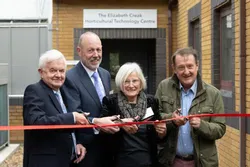 A facility using gene-editing technology to improve quality, resilience and sustainability of vegetable crops has opened at the University of Warwick.
A facility using gene-editing technology to improve quality, resilience and sustainability of vegetable crops has opened at the University of Warwick.
The Elizabeth Creak Horticultural Technology Centre (ECHTC), which also contains The Jim Brewster Laboratory, is a £1.5 million facility which will use cutting edge techniques such as gene-editing to improve vegetable crops.
Addressing issues relating to disease resistance, crop yield, adaptability to climate change and nutritional value in horticultural plants, the research will help with the key global challenges of climate change and feeding the world’s growing population.
Press Release (10 November 2022)
Blog: Research culture from a technical point of view
Our Research Facility Manager, Dr Sarah Bennett, gives her thoughts on research culture from a technician's perspective.
Read the blog (9 November 2022)
International collaboration identifies new molecular targets in crop resistance
Professor Murray Grant is part of a team of international researchers who have identified and classified new isomers that could help develop more robust and resistant crops – via synthetic biology approaches.
Press Release (4 November 2022)
Warwick iGEM success
iGEM is a global synthetic biology competition aimed at University and High School students.This year, 360 teams from across the world took part in iGEM, including a team from Warwick - team PyRe. The team attended the Grand Jamboree in Paris, on 26-28 October.
After delivering their presentation and attending the judging session, the team were awarded a gold medal for their project. They were also nominated for the Best Environment Project for their excellent work on the detection and degradation of pyrethroid pesticides. Read about the project.
Team PyRe members:
- Aayush Patel (2nd Year Biochemistry)
- Mujie Chen (2nd Year Neuroscience)
- Ashmitha Srirasan (3rd Year Biomedical Science)
- Yvette Lo (3rd Year Biomedical Science)
- Jerry Yu (4th Year MBio Biochemistry)
- Zak Fulk (3rd Year Biomedical Systems Engineering)
- Ng Yi Fan (2nd Year Economics)
The team were supported by Dr Fabrizio Alberti and Dr Alexander Darlington (Engineering), and postgraduate advisors Sandie Lai, Daniel Richmond (Chemistry), Michaël Dagne Tadesse and Nathan Burton.
Elizabeth Creak Distinguished Guest Lecture - 10 November 2022
£1.7m memorial donation enables new antimicrobial research
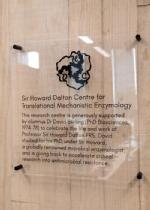 A £1.7 million memorial donation will help drive new research into antimicrobial resistance at the University of Warwick. The donation, made in recognition of the late Sir Howard Dalton, will fund research and scholarships to help discover new drugs that target resistant microbes.
A £1.7 million memorial donation will help drive new research into antimicrobial resistance at the University of Warwick. The donation, made in recognition of the late Sir Howard Dalton, will fund research and scholarships to help discover new drugs that target resistant microbes.
On Thursday 20 October, a launch event was held in the University of Warwick’s new Interdisciplinary Biomedical Research Building (IBRB) for the Sir Howard Dalton Centre for Translational Mechanistic Enzymology. Professor Chris Dowson, Co-Director of the new Centre said “A key focus for scientists at the Centre will be understanding changes to enzyme structures which underpin drug resistance in microbes. We want to discover how these modified enzymes are formed and what we can do to overcome the resistance".
Press Release (21 October 2022)
Our Technical Talent
 Over the next few weeks the University is showcasing the vital roles our technical staff play in the world-class research and teaching at Warwick. The latest video features Georgia Lavender, Senior Teaching Lab Technician, from the SLS Teaching Lab.
Over the next few weeks the University is showcasing the vital roles our technical staff play in the world-class research and teaching at Warwick. The latest video features Georgia Lavender, Senior Teaching Lab Technician, from the SLS Teaching Lab.
Watch the video.
Producing a baked bean suitable for growing in the UK
 On Thursday 13 October, Professor Eric Holub, a plant scientist at Warwick Crop Centre, was featured on Channel 5 discussing his research to produce baked bean varieties suitable for growing in the UK climate on a commercial scale.
On Thursday 13 October, Professor Eric Holub, a plant scientist at Warwick Crop Centre, was featured on Channel 5 discussing his research to produce baked bean varieties suitable for growing in the UK climate on a commercial scale.
Growing haricot beans in the UK will offer a low food miles alternative supply model to those currently imported from North America.
Watch Secrets of Your Supermarket Shop: Episode 6 (from 28 mins).
Warwick included in ancient DNA compilation celebrating Nobel Prize
 Nature Portfolio has compiled a collection of key ancient DNA papers in celebration of the Nobel Prize in Physiology or Medicine award to the field’s principal pioneer, Svante Pääbo, which includes the work of Professor Robin Allaby published in Nature Reviews Methods Primers. The paper outlines the best current methodological approaches to the field, the wide range of applications possible and ethics involved. The primer is freely available for a month.
Nature Portfolio has compiled a collection of key ancient DNA papers in celebration of the Nobel Prize in Physiology or Medicine award to the field’s principal pioneer, Svante Pääbo, which includes the work of Professor Robin Allaby published in Nature Reviews Methods Primers. The paper outlines the best current methodological approaches to the field, the wide range of applications possible and ethics involved. The primer is freely available for a month.
The Nobel Prize was awarded in particular for the discoveries concerning the genomes of extinct hominins and human evolution which has dramatically changed how we understand human evolution and contributes to our understanding of modern-day human physiology. At Warwick, Professor Allaby has applied ancient DNA to past genomes of crop plants which is rewriting our understanding of domestication, recently reviewed in Trends in Ecology and Evolution.
Technician insights shared at regional UKRI leaders visit
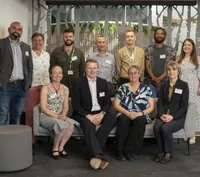 Sarah Bennett (Research Support Facility Manager, WISB) and other Warwick technicians, met with senior leaders from UKRI to share their experiences of the research and innovation ecosystem and discuss opportunities offered through the Research England funded TALENT programme. This unique networking opportunity was organised by Midlands Innovation as part of a two-day visit to the region in July to help inform UKRI’s new five-year strategy.
Sarah Bennett (Research Support Facility Manager, WISB) and other Warwick technicians, met with senior leaders from UKRI to share their experiences of the research and innovation ecosystem and discuss opportunities offered through the Research England funded TALENT programme. This unique networking opportunity was organised by Midlands Innovation as part of a two-day visit to the region in July to help inform UKRI’s new five-year strategy.
Find out more
Scientists develop a new non-opioid pain killer with fewer side effects
 A promising new non-opioid painkiller (analgesic) with potentially fewer side effects compared to other potent painkillers, has been discovered.
A promising new non-opioid painkiller (analgesic) with potentially fewer side effects compared to other potent painkillers, has been discovered.
A team of scientists, co-led by researchers from the School of Life Sciences, has investigated a compound called BnOCPA (benzyloxy-cyclopentyladenosine), found to be a potent and selective analgesic which is non-addictive in test model systems. BnOCPA also has a unique mode of action and potentially opens a new pipeline for the development of new analgesic drugs.
Press Release (20 July 2022)
Consider farmers at individual level when controlling livestock disease outbreaks, researchers say
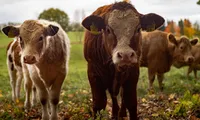 Livestock diseases will be better managed by incorporating the behaviours of individual farmers into national infection control policies, according to new research.
Livestock diseases will be better managed by incorporating the behaviours of individual farmers into national infection control policies, according to new research.
The findings are the latest from the BBSRC-funded Farmer-led Epidemic and Endemic Disease-management (FEED) project, an interdisciplinary research group including epidemiologists, mathematical modellers, behavioural scientists and veterinarians from the Universities of Warwick and Nottingham. The research is published this week, in the journal PLOS Computational Biology, in a paper entitled “Modelling livestock infectious disease control policy under differing social perspectives on vaccination behaviour”.
Press Release (15 July 2022)
New insights into how cyanobacteria regulate zinc uptake in the open ocean
Marine cyanobacteria (blue-green algae) are major contributors to the global carbon cycle and are the basis of the food web in many of the world’s oceans. They only require sunlight, carbon dioxide, plus a panel of essential elements, including metals, to sustain life. However, little is known about whether and how cyanobacteria utilize or regulate zinc, an element often considered to be essential to life.
An interdisciplinary research team including Professor Dave Scanlan and Dr Alevtina Mikhaylina, has identified a remarkably efficient regulatory network that controls zinc accumulation in the open ocean cyanobacterium Synechococcus.
Press Release (9 June 2022)
Warwick researchers identify novel cellular process that helps us understand the mechanisms of ageing-related diseases
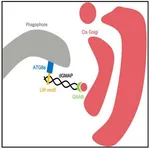 A team of researchers led by Professor Ioannis Nezis has identified the molecular and cellular mechanisms that regulate selective autophagy in the fruit fly Drosophila melanogaster.
A team of researchers led by Professor Ioannis Nezis has identified the molecular and cellular mechanisms that regulate selective autophagy in the fruit fly Drosophila melanogaster.
Press Release (31 May 2022)
Citizen Science: Know Your River
'Know Your River' is a new citizen science project based at the School of Life Sciences, funded by the Enhancing Research Culture Fund from UKRI.
The Know Your River Team, led by Dr Chiara Borsetto, is looking at the pollution state of rivers in England and their use for recreational purposes by using a citizen science approach. The project aims to raise awareness across the public on the issue of sewage pollution in rivers and associated risks to human health and also to engage with policy makers to help promote safeguarding of our rivers.
Anyone who is interested in rivers or using rivers for recreational activities across England can help by telling us how they use rivers and what their perception of river pollution is through anonymous surveys. You can also join in by collecting river water samples from across the River Severn, Thames and Humber catchment areas. The water samples will be analysed for presence of E.coli and other coliform bacteria resistant to antibiotics and the presence of selected antibiotics will also be monitored. We believe that citizen science can be a powerful tool to gather information about the environment we all live in. The deadline for participation is Thursday 30 June.
If you would like to find out more or be involved in the project, then please visit our website at www.warwick.ac.uk/knowyourriver and follow us on Twitter.
REF2021: Research Excellence
The REF results, released on Thursday 12 May 2022, show 90% of research in the School of Life Sciences has been rated as 'world leading' or 'internationally excellent'. This shows the outstanding quality of our research and we are very proud of all the hard work put in by our researchers and postgraduate students.
Find out more about our research
University of Warwick recognised as international centre of research excellence by leading experts
(Press Release 12 May 2022)
About REF 2021
The Research Excellence Framework (REF) is the UK’s system for assessing the quality of research in UK higher education institutions.
The REF is undertaken by the four UK higher education funding bodies: Research England, the Scottish Funding Council (SFC), the Higher Education Funding Council for Wales (HEFCW), and the Department for the Economy, Northern Ireland (DfE).
Bad bugs, no drugs: A world without antibiotics
 It was announced last month that two new antibiotics may be available on the NHS. Professor Chris Dowson explains why there is an urgent need to develop new antimicrobials and protect the drugs we have.
It was announced last month that two new antibiotics may be available on the NHS. Professor Chris Dowson explains why there is an urgent need to develop new antimicrobials and protect the drugs we have.
Knowledge Centre article (12 April 2022)
SLS students represent University of Warwick at Botanical University Challenge
The room was full of tension and enthusiasm on Wednesday 16 February as Warwick’s team, Pistils at Dawn, entered this year’s Botanical University Challenge (BUC). Pistils at Dawn fought well in the closely run competition, coming 11th out of the 18 institutions that entered. Only 4 points separated Pistils at Dawn from the top eight teams, which went on to compete in the finals on 23 February. The Challenge organiser, Dr Jonathan Mitchley sent team Pistils at Dawn “huge commiserations for such a close shave” and told the team to “be proud, very proud” as they were the first ever team to enter for the University of Warwick.
Co-captains Jamie Pike and Annabelle de Vries, along with Andy Gladman, Stefania Luca, and reserve Andis Gyori László, were quizzed on a broad range of botanical subjects including botanical literature and art, plant identification, and national flags! The team hopes to enter again next year, with eyes set on top place. You can see how well you fair and meet the teams by visiting the BUC YouTube channel.
“The future of women in STEM is bright but not secure”: Warwick climate scientist
Four female climate scientists from India, Pakistan, and Bangladesh — who are currently pursuing postgraduate studies in Life Sciences thanks to ‘Women in STEM’ scholarships between the University of Warwick and the British Council — share their experiences and reflections on the International Day of Women and Girls in Science 2022.
Press release (11 February 2022)

